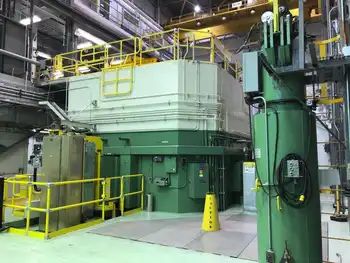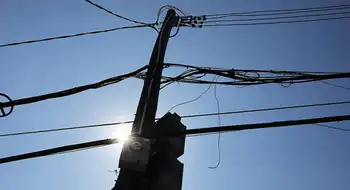Tighter power plant rules urged after blast
By Associated Press
Arc Flash Training CSA Z462 - Electrical Safety Essentials
Our customized live online or in‑person group training can be delivered to your staff at your location.

- Live Online
- 6 hours Instructor-led
- Group Training Available
If adopted, the regulations would make Connecticut the first state to add extra oversight to the "gas blow" procedure, in which high-pressure natural gas is blown through pipes in some power plants and factories to clear debris.
Five workers were killed instantly and a sixth man died later of injuries from the February 7 blast at the under-construction Kleen Energy Systems plant in Middletown.
The plant exploded when something ignited the 400,000 cubic feet of gas and air that had accumulated in tight quarters during the gas blow procedure. The ignition source is still under investigation.
Retired U.S. District Court Judge Alan Nevas, chairman of the Connecticut panel that issued its recommendations Thursday, said government agency leaders in the group found that permits were in place for all of the regulated procedures at the plant.
But they also discovered that state law doesn't require special training, licensing or oversight for employees performing the gas blow — and their research found no such special regulations in other states, he said.
"This is a process that appears, to me at least, to have fallen between the cracks," Nevas said. "We live in a very highly regulated society, and to find that this was not regulated was surprising."
The law doesn't require companies to notify regulators and nearby residents before performing a gas blow.
It also doesn't address whether materials used have to meet certain standards, whether it should be prohibited during certain weather conditions that could affect how the gas disperses, and whether workers' hours should be limited so they aren't fatigued when they start the procedure.
State reviews of work records from contractors at the Kleen Energy plant found a majority of workers were on the job for more than 40 hours a week, and that some worked as many as 90 hours per week.
Linda Agnew, acting commissioner of the state Department of Labor, said there are no laws limiting work hours at private workplaces. She said their review found minor violations in record-keeping, but nothing suggesting those violations could be blamed for the long work hours or blast.
Gov. M. Jodi Rell created the panel to review the explosion and make recommendations to a second commission, which now receives the report that was just finalized. The second commission will report to Connecticut legislators in time for possible action in the 2011 legislative session, which starts in January.
Kleen Energy's permit for its Middletown plant construction expires November 30 of this year, so no new laws would be in place before it applies for renewal or an extension.
The panel advised the Connecticut Siting Council, which handles those permits, to include its recommendations as mandatory conditions if it renews the Kleen Energy permits.
Middletown detectives and state police are investigating whether any people or businesses should face criminal charges in connection with the explosion and deaths.
Robert Reardon, one of four attorneys representing 10 injured and deceased workers in civil lawsuits, said there is "no question in our minds" that the blast could have been avoided if the general contractor had faced the kind of stricter regulations that the commission advised.
"I think that the commission is on the right track. Unfortunately, sometimes industry has to be regulated by the state and federal government when they fail to regulate themselves properly, and this is one of these instances," Reardon said.
The U.S. Chemical Safety Board, which criticizes gas blows as inherently unsafe, also is investigating and plans to hold a June 28 public hearing in Portland, Conn., about dangers and alternatives to the procedure.
Several other industrial accidents involving natural gas have occurred in recent years, including one that killed four people last year at the ConAgra Foods Inc. plant in Garner, North Carolina, and another in 1999 at a Ford Motor Co. power plant in Dearborn, Michigan, that killed six.











